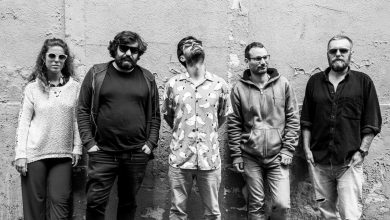Week of Foreign Cultures in Paris with Portuguese programming
The event, which starts on Friday, September 21, and runs until September 30, is organized by the Forum of Foreign Cultural Institutes in Paris (FICEP), which includes the Portuguese Cultural Center – Instituto Camões.
In the Portuguese programming, the film “Diamantino” by Gabriel Abrantes and Daniel Schmidt was chosen, a performance of the “plastic-sonorous musician-sculptor” Ricardo de Barros Oliveira and a studio of “histories-concerts” by Sérgio Pélagio and Isabel Gaivão .
“Diamantino”, which won the Cannes Film Festival Critics’ Week Grand Prix in May, will be screened at the Goethe Institute on September 24, two months before it arrives in French cinemas on 28 November (the debut in Portugal is scheduled for November 15).
On September 27th, at the Cultural Center of Serbia, João Ricardo de Barros Oliveira, “Cactus Sonorus”, “a sculpture to hear and see”, was born from the orchestration of cacti.
On September 26, Portuguese programming is aimed at a young audience with “Magnetic Stories”, a children’s composition project that will be performed by Sérgio Pélagio (electric guitar) and Isabel Gaivão (voice), at the Collège Henri Cahn, in Bry-sur-Marne on the outskirts of Paris.
The theme of this edition of the Week of Foreign Cultures, “Digital and Virtual Reality”, was “the vacant but right pretext” for the choices of João Pinharanda, director of the Portuguese Cultural Center of the Camões Institute in Paris.
“I got this little excuse for a big movie.” Diamantino “touches on immense issues, from football, ironically, to the rise of nationalism and racism, the arrival of refugees in Europe, questions about art and gender “And in the middle of all this, there is also a reference to the manipulations that modern science does to the human body, namely cloning,” said João Pinharanda.
The first feature film of Gabriel Abrantes and Daniel Schmidt tells the story of Diamantino, played by actor Carloto Cotta, a world-football superstar whose career falls into disgrace and “enters a delirious odyssey, involving neofascism, refugee crisis , genetic modification and the search for the origin of genius, “according to the film’s synopsis.
The director of the Camões Center in Paris added that he also chose João Ricardo de Barros Oliveira for being “an artist who works in experimental and acoustic music, who makes music, namely, from recovered things like vacuum cleaners” “a work done with true cacti whose peaks are connected to electrical terminals and that produce music when manipulated.”






